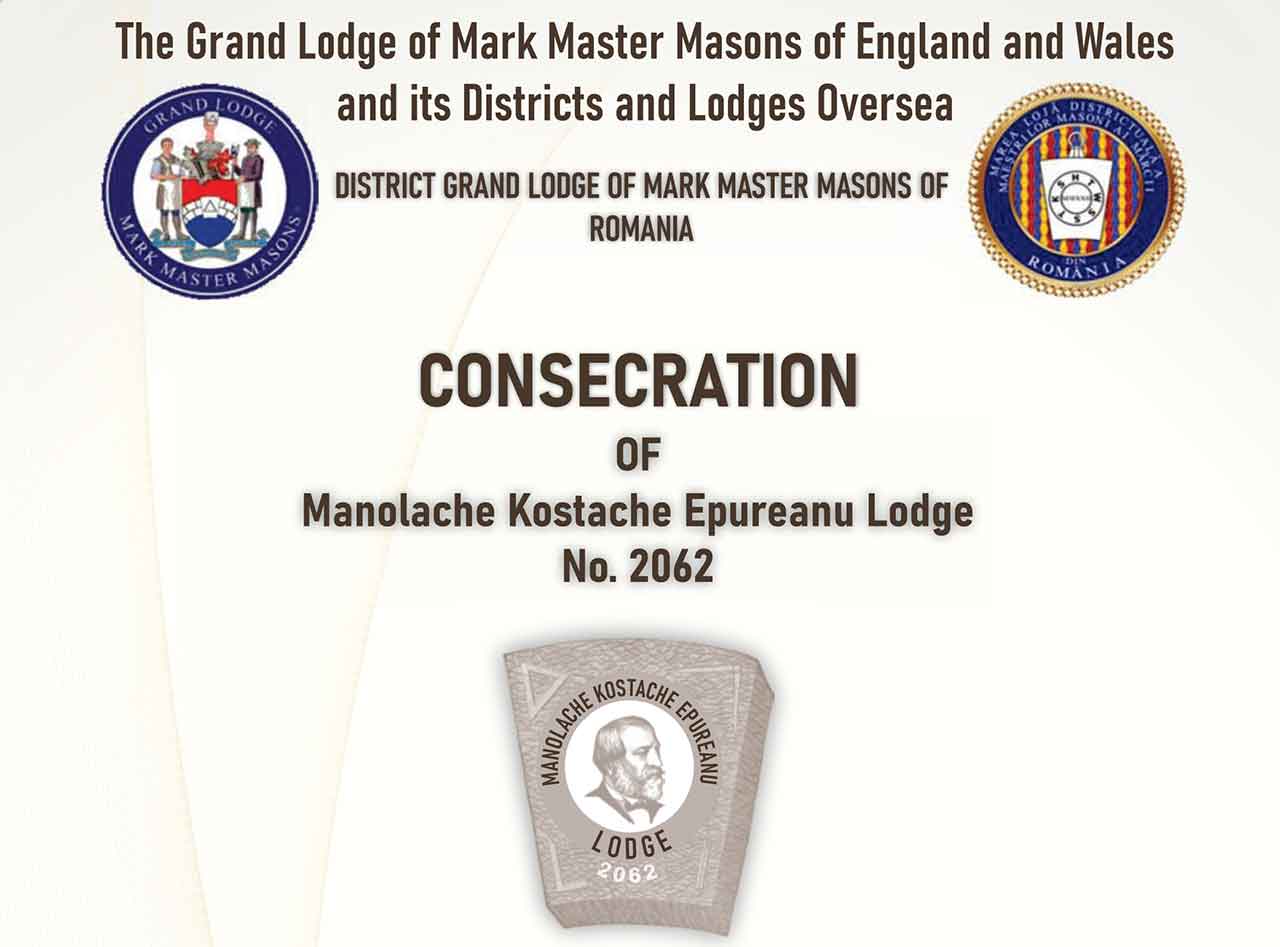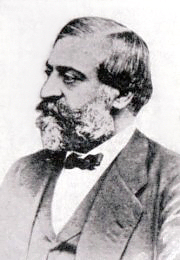Ordinul Mark » 7th-9th February 2025: Consecration of Manolache Kostache Epureanu Lodge No. 2062

Manolache Costache Epureanu was a man of his time, originating from Bârlad and descending from an old family of Moldavian boyars, with roots dating back to the era of the great Voivode Stephen the Great. His family owned estates in Lower Moldova, in the Fălciu region, at Epureni, which gave rise to the name Epureanu. The family’s ties with major Moldavian noble families, such as the Cantacuzino, Costin, Racoviță, Sturdza, and Ghica families, contributed to the creation of a significant political and cultural dynasty.

Manolache Costache Epureanu played a vital role in Romania’s political and constitutional life during the country’s modernization. Former Prime Minister, parliamentarian, and president of the Constituent Assembly of 1866, he was one of the founders of the two major political parties of modern Romania: the National Liberal Party in 1875 and the National Conservative Party in 1880. He had a significant political career, holding the position of Prime Minister multiple times, both in Moldova and Wallachia.
Epureanu began his education in Lemberg (now Lviv, Ukraine), where he studied languages such as Greek, Latin, and German. Between 1836 and 1839, he attended law faculties at Heidelberg and Jena, earning a doctorate in law. He completed his education in Paris, where he adopted the ideas of the French Revolution, embracing the principles of “Liberty, Equality, Fraternity.” Upon returning to the country, in 1846, he debuted in the political life of the Principality of Moldova as president of the Tribunal of Tutova County, where he became known for his integrity: “The tribunal follows only the orders of the law.” On a personal level, he was a man of vast culture, passionate about classical music, especially Beethoven, and an accomplished chess player. In his youth, he was also a renowned duelist.
Between 1846-1847, as a magistrate in Bârlad, Epureanu befriended Alexandru Ioan Cuza, who often visited his hometown. He was also a close friend of his cousin Costache Negri and Vasile Alecsandri. During this time, Epureanu was initiated into Freemasonry, joining the “Neamul Nostru” Lodge in the Orient of Iași alongside figures like Vasile Alecsandri, Costache Sturdza, and Alexandru Ioan Cuza.
Manolache Costache Epureanu was an active supporter of the 1848 Revolution, signing, along with five other Freemasons, the famous manifesto “Our Principles for Reforming the Fatherland”, drafted in Brașov in May 1848. His involvement in revolutionary events led to his temporary exile, but he returned to the country in 1849 after Mihail Sturdza was removed from power.
After his return, during the “struggles for the Union” in 1856, Epureanu took a strong pro- unionist stance. In 1858-1859, he was one of the deputies of the Elective Assembly who voted to elect Alexandru Ioan Cuza as Prince of Moldova. After the union with Wallachia, Epureanu became one of Cuza’s closest collaborators, being appointed Prime Minister of Moldova (in 1859) and of Wallachia (in 1860).